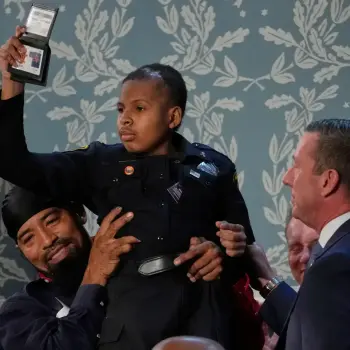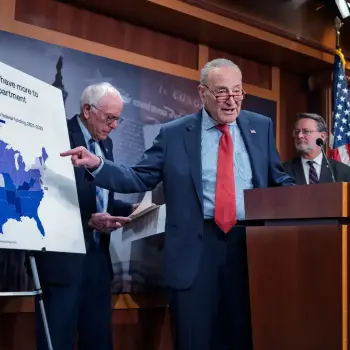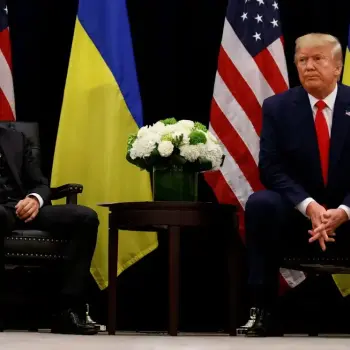Former President Donald Trump was the target of what the FBI says “appears to be an attempted assassination” at his Florida golf club yesterday. The incident at West Palm Beach comes just nine weeks after the Republican presidential nominee survived an attempt on his life.
Law enforcement officials have been warning that threats of politically motivated violence have spiked online since the July 13 shooting in Butler, Pennsylvania. The Secret Service has long viewed golf as especially vulnerable, as courses offer a precarious combination of open ground and the predictability of a protectee moving from hole to hole.
On Sunday, Mr. Trump was walking between holes five and six when an agent ahead of him spotted a rifle barrel protruding out of a fence near the golf club’s property line. Secret Service personnel fired at least four shots. The gunman dropped the rifle and fled in an SUV. According to Palm Beach County Sheriff Ric Bradshaw, the man left the firearm behind along with two backpacks, a scope used for aiming, and a GoPro camera.
The gunman was only four hundred yards from the former president. According to Sheriff Bradshaw, “With a rifle and a scope like that, that’s not a long distance.” The man was later taken into custody in a neighboring county.
Mr. Trump returned to Mar-a-Lago, his private club in Palm Beach where he lives; it was not immediately clear whether the incident would affect his campaign schedule. The White House issued a statement noting that Joe Biden and Kamala Harris had been briefed about the threat against Mr. Trump and are “relieved to know that he is safe.”
An “inevitable new normal”?
Of the forty-five individuals serving as US president, fourteen have been subject to actual or attempted assassination. But yesterday’s event was different.
As Juliette Kayyem reports in the Atlantic:
Much is unsettling about this attack: Trump’s schedule was not public; the assassin got dangerously close to the former president with an AK-47 style gun with a long-range scope; he appears to have worn defensive “ceramic tiles” as an ad-hoc bulletproof vest as if anticipating engagement. Most unsettling is that he had a GoPro camera to capture his actions and, if successful, air them to the world.
Anthony Zurcher adds for the BBC:
Americans have had to adjust to “new normals” in politics—large and small—on a seemingly regular basis in the past few years. The national discourse has coarsened, partisan divisions have sharpened and become more entrenched, and the standards for candidate behavior have eroded.
Given the national epidemic of gun violence, these kinds of attacks are perhaps another, inevitable new normal. But for now, it is still shocking.
Most previous assassinations and attempts came before social media became so ubiquitous. Now anyone with a camera can achieve instant notoriety by trying to kill a president or presidential candidate. We may therefore continue to see would-be assassins seek publicity for themselves and their purported causes in such a nefarious way.
If Lincoln had not been assassinated
Many are arguing this morning that the Secret Service should grant Mr. Trump and Ms. Harris the same level of protection afforded a current president. (The entire golf course would have been surrounded if Mr. Trump had been a sitting president.) However, as John F. Kennedy ominously noted, “If anyone is crazy enough to want to kill a president of the United States, he can do it. All he must be prepared to do is give his life for the president’s.”
In this sense, yesterday’s attempted assassination points to a foundational challenge of American democracy: the pivotal role of the US president.
Beginning with George Washington, our chief executive has always been vital to America flourishing. When our presidents have been strong and effective, our nation has been healthier. When they have failed, we have suffered as a result.
For example, the assassination of Abraham Lincoln set back race relations and the integration of the North and South for generations. Andrew Johnson, the man who succeeded him, is widely viewed by historians as “the worst possible person to have served as president.” He was a “rigid, dictatorial racist” whose failed leadership “did more to extend the period of national strife than he did to heal the wounds of war.” It is similarly plausible that if John F. Kennedy had not been assassinated, America’s involvement in the Vietnam War would have been significantly lessened.
If our political rancor continues to worsen while the availability of social media platforms makes assassination attempts more common, we have reason to fear for the health and future of our democracy.
But fear is always the wrong response to the future.
“His grace sufficient, his promise unchangeable”
John Newton, the famous author of Amazing Grace, testified:
If the Lord be with us, we have no cause of fear. His eye is upon us, his arm is over us, his ear open to our prayer—his grace sufficient, his promise unchangeable. Under his protection, though the path of duty should lie through fire and water, we may cheerfully and confidently pursue it.
We worship and serve a King whose reign will never end, a Father who loves us unconditionally and whose providence is omnipotent. We are therefore called to pray fervently for those with the courage to lead us in such dangerous times, asking God for their protection and wisdom (1 Timothy 2:1–2).
And we are invited to trust our personal and national challenges to God “by prayer and supplication with thanksgiving,” knowing that “the peace of God, which surpasses all understanding, will guard your hearts and minds in Christ Jesus” (Philippians 4:6–7).
Do you have such peace today?












